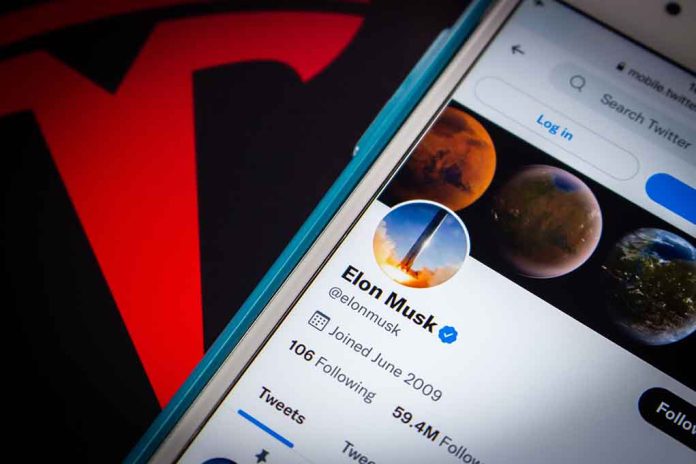
Elon Musk’s response to a conspiracy theory involving a pseudonym on X highlights the tensions between journalism and social media censorship.
At a Glance
- Elon Musk suspended journalist Jacqueline Sweet from X after her investigative article debunked a conspiracy theory involving him.
- The debunked theory suggested Musk used a pseudonym, “Adrian Dittmann,” to praise himself on the platform.
- Sweet confirmed Adrian Dittmann as a real person residing in Fiji, separate from Musk.
- The suspension highlighted concerns about censorship and journalistic freedom.
- Critics argue Musk’s actions contradict his advocacy for free speech.
The Conspiracy Theory and Investigation
An investigative report by Jacqueline Sweet indicated Elon Musk was allegedly using a burner account—Adrian Dittmann—to promote himself on X. The narrative, however, was built on shaky grounds, and Sweet’s persistent efforts dismantled it. She identified Dittmann as a German businessman actually residing in Fiji with no ties to Musk whatsoever. Her revelations, supported by social media analysis and AI comparisons, cleared the air about Musk’s supposed alter ego. Moreover, Sweet’s article in The Spectator World highlighted Dittmann’s real-life engagements.
Musk’s reaction led to Sweet’s suspension from X, raising questions about the balance between censorship, privacy, and media freedom. Sweet’s account was flagged for containing “violent or misleading content,” effectively preventing her from accessing X for 30 days. This move by Musk, who often champions free speech, drew criticism from various quarters for potentially suppressing legitimate journalism.
Reactions and Controversy
The suspension of Sweet’s account became a focal point of debate. Critics accused Musk and the platform X of stifling dissent and press freedom in order to safeguard his public image, while supporters claimed Sweet’s reporting, which detailed personal aspects of Dittmann without his consent, breached ethical boundaries. The controversy involved ethical considerations, like balancing journalistic transparency with individual privacy.
Musk responded cryptically to the situation on X, stating, “I am Adrian Dittmann,” which some interpreted as Musk mocking the conspiracy theorists. Despite the backlash, Musk maintained his stance on the account suspension, further fueling tensions about journalistic practices and social media platforms’ ethics. The situation underscored the broader challenges of maintaining integrity and privacy in the age of digital media.
The Implications for Social Media and Journalism
The incident between Musk and Sweet reflects the wider issues plaguing modern media. The balance between facilitating free expression and protecting individual identities has become a delicate endeavor, with platforms like X sitting at the crux of this challenge. Similarly, journalists face the task of thoroughly investigating and accurately presenting the truth without infringing on personal boundaries or compromising integrity.
The evolving landscape necessitates continuous discourse on the ethics of journalism and the responsibility of tech giants. Ultimately, ensuring transparency and accountability remains a collective responsibility of both journalists and social media platforms to cultivate an environment of informed discourse and resilient truth.
Sources:
- Elon Musk Suspends Reporter From X, Declares ‘I Am Adrian Dittmann’
- Elon Musk ‘locks reporter from X’ after article sheds light on Tesla owner’s alleged alter ego Adrian Dittman | Daily Mail Online
- Elon Musk’s X boots reporter from site after she debunks bizarre conspiracy theory claiming mogul uses burner account













